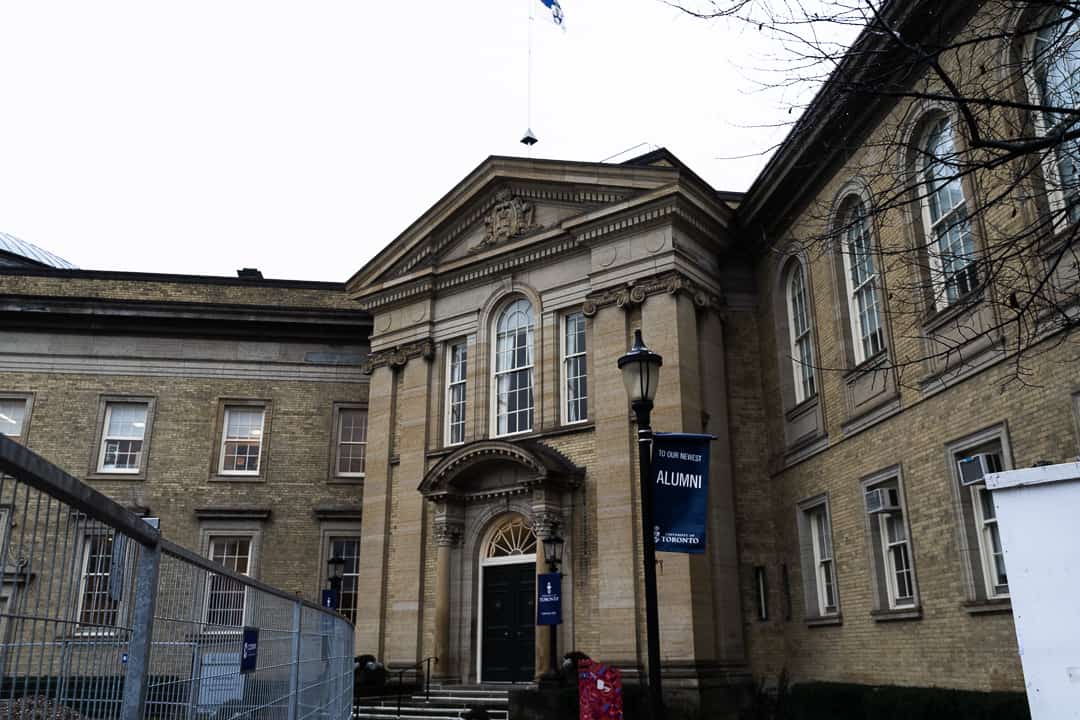At a meeting on December 15, 2022, U of T’s Governing Council approved updates to the university’s Policy on Sexual Violence and Sexual Harassment, which came into effect on January 1, 2023.
During the meeting, U of T President Meric Gertler addressed recent reports of antisemitism at the Temerty Faculty of Medicine. The Governing Council also heard reports from the President’s Advisory Committee on the Environment, Climate Change, and Sustainability (ECCS) and the School of Continuing Studies (SCS).
Sexual violence policy
At the meeting, Professor Sandy Welsh — vice provost, students — offered governors a presentation on the second review of the Policy on Sexual Violence and Sexual Harassment, which began in October 2021.
Welsh expressed confidence in the results of the review, saying that the policy revisions “further [the university’s] commitment to creating an environment where all members of our community can live, work, and study free from harassment or violence of any kind.”
Following Welsh’s presentation, Governing Council Chair Janet Ecker opened the floor to several representatives from student organizations, who criticized the revisions and the university’s handling of UTM professor Robert Reisz’s violation of the sexual harassment policy.
After hearing the student speakers’ concerns, several members of the Governing Council pressed U of T administration on whether the revised policy was, as Teaching Staff Governor Jan Mahrt-Smith put it, “as good as it gets.”
However, upon prompting from the chair, the Governing Council voted to pass the revisions to the policy. Governors Janet Cloud, Professor Shashi Kant, and Professor David Zingg voted against approving the revisions. All other council members voted to approve the revisions. There were no abstentions.
The next review is legally required to occur in 2025.
President’s report
In his report to the Governing Council, Gertler addressed the issue of antisemitism at the Temerty Faculty of Medicine.
In early December 2022, Dr. Ayelet Kuper — a professor who was Temerty’s senior adviser on antisemitism from June 2021 to June 2022 — released a Canadian Medical Education Journal paper that noted a rise in “hateful attitudes” toward Jews at the faculty. Kuper is a descendant of Polish Jewish Holocaust survivors. The paper describes her own experiences of discrimination, as well as similar “stories shared widely within [the] community.”
Soon after the paper’s release, the Toronto Star reported that the Friends of Simon Wiesenthal Center, an antisemitism organization, had called for an immediate inquiry into the problem.
In light of those events, Gertler provided governors with a summary of the university’s relevant work to address antisemitism. He noted that the university has an antisemitism working group, which was established in 2020. Following a period of community consultations, the working group released a report in December 2021. According to Gertler, the university has committed to implementing each of the report’s eight recommendations, which include addressing harassment and academic freedom.
Gertler drew governors’ attention to the response at the faculty level, telling them that Temerty’s dean, Trevor Young, has commissioned research on the historical practice of limiting Jewish students to a certain quota. Gertler also mentioned that Temerty has revised curricula, introduced antiracism training, and carries out consultations with Jewish students to ensure that they feel supported.
“I want to assure members of our university community that we remain deeply committed to fighting the scourge of antisemitism on our campuses,” Gertler said.
On December 21, 2022, Gertler addressed the antisemitism issue at Temerty in a Globe and Mail opinion article.
Other reports
Ron Saporta — chief operating officer, property services & sustainability — presented the annual report for ECCS, of which he is co-chair.
The report addressed the committee’s progress over its five years of operations. One recent milestone that Saporta noted was the university’s 2021 launch of a climate positive plan. Saporta said this would make UTSG a carbon sink — an operation that absorbs more carbon than it releases — long before 2050. This year, the committee focused on advancing that plan through a decarbonization initiative called Project LEAP, which Saporta says will reduce emissions from the university by around 65 per cent.
During the questions period, Saporta noted that next year, U of T will launch an air travel emissions mitigation program that will offer the institution internal offsets “very similar to the type of offset programs you can get from Air Canada, in terms of cost.” According to Saporta, this program will help fund efforts to address emissions across all three campuses.
Catherine Chandler-Crichlow, dean of the SCS, also presented a report on a recent “recalibration” of the division’s strategic plan. Chandler-Crichlow informed governors that the SCS had carried out tri-campus consultations with the goal of boosting its open-enrolment program delivery, and that the SCS plans to launch its new strategic plan early this year.
The next Governing Council meeting will take place Wednesday, February 15, at 4:30 pm.


